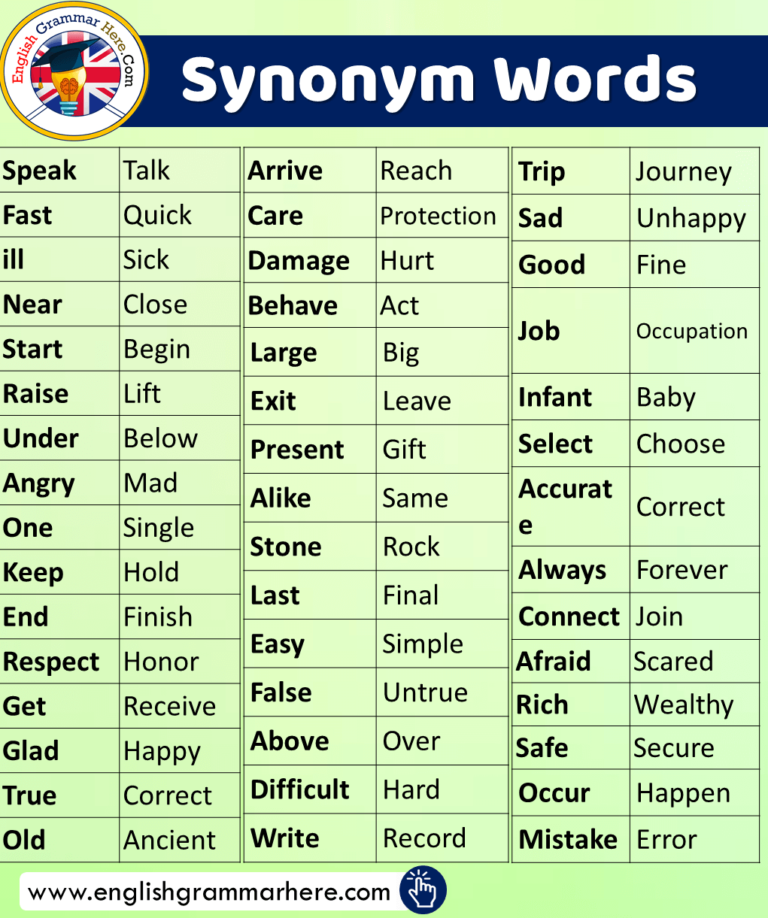

But, the second one uses synonyms to give a better idea of the situation and the author’s view. The first sentence gets the point across to the audience. Going up the tall mountain was difficult.Īscending the towering, elevated mountain was easier said than done. Young Adult: The ducklings, still with soft yellow feathers, waddled back and forth in the puddles after the dawn showers.įurthermore, synonyms can also be used when you make a thought more or less simple or complete, or more or less detailed or descriptive.Children’s: The fuzzy yellow duckies went splish splash splish splash in the morning rain.What’s more, proper word choice is important when writing for readers of all ages-for instance, the synonyms you choose for children’s literature should be simpler than those you used when writing young adult literature: What are these Click on the pictures to check. Choose from collocations, synonyms, phrasal verbs and more.

We have thousands of six-question quizzes to try. They find twigs and branches from forest around them to create amazing homes on the river, called dams. From Longman Dictionary of Contemporary English easier said than done easier said than done especially spoken DIFFICULT used to say that something would be. Creative: Beavers are furry animals that spend their lives swimming and collecting.They are skilled swimmers, and make their habitats in rivers, called dams. For instance, read the two sentences below: Synonyms are (and should be) used all the time! It’s important to know which synonyms to use when writing in different styles, genres, and forms of writing-creative, formal, informal, fiction, nonfiction and so on. So, you choose synonyms to use in your writing just like you do when speaking. We take in our surroundings all the time-audience, setting, situation-and speak accordingly, sometimes even subconsciously. While this may seem like a lot to think about, in reality, using synonyms comes naturally in our everyday speech. Purpose-are you choosing words for descriptions like characterization, setting, etc?.Audience-who has to understand the words: children, teenagers, adults?.Type of Writing-is your work informative, persuasive, creative? ambitious arduous backbreaker bothersome burdensome challenging crucial demanding easier said than done effortful exacting formidable galling.Connotation-do you want your meaning to be positive, negative, or neutral?.To choose synonyms, you should consider several key things besides a word’s definition:


 0 kommentar(er)
0 kommentar(er)
